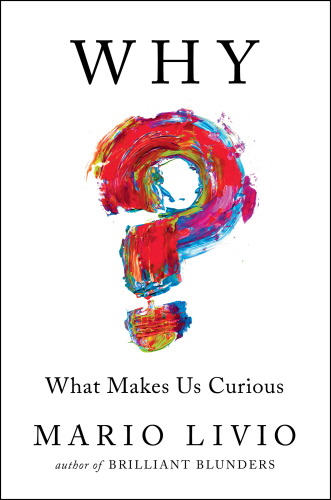
Why?
What Makes Us Curious
- اطلاعات
- نقد و بررسی
- دیدگاه کاربران
نقد و بررسی

May 1, 2017
Astrophysicist Livio (Brilliant Blunders) makes the claim that the capacity for curiosity is one of the biggest differences between humans and other animals. He describes curiosity as coming in two forms: perceptual and epistemic. The former is “triggered by novelty, surprise, or puzzling stimuli,” he writes, and is related to negative feelings associated with lack of knowledge. Epistemic curiosity generates positive emotions and “embodies our love of knowledge and the drive for its acquisition.” Livio accessibly addresses some of the basic psychological and neurobiological underpinnings of curiosity, but he does so superficially. Similarly, he provides a shallow exploration of “two of the most curious minds to have ever existed”—Leonardo da Vinci and Richard Feynman. He also offers nine all-too-brief and wholly unsatisfying talks with successful individuals, ostensibly to determine if there are any similarities between them that might inform his quest to understand the drive to discover. Livio concludes by offering simplistic advice for educators: “Educators should frequently ask questions, but they should not provide the answers right away. Instead, they should encourage their students to give the answer themselves, and then to think of ways to test the correctness of their answers.” While there are interesting nuggets here, Livio never delves deeply enough to get beyond the surface. Agent: Susan Rabiner, Susan Rabiner Literary.

May 15, 2017
An astrophysicist asks, "what are the underlying mechanisms of curiosity and exploration?"Whether it was Leonardo da Vinci filling volumes with speculations, the millions of readers addicted to mystery novels, or the army of scammers teasing us to click on their tempting links, curiosity fills our lives. No one understands it, but it's not for want of trying, and bestselling author Livio (Brilliant Blunders: From Darwin to Einstein--Colossal Mistakes by Great Scientists that Changed Our Understanding of Life and the Universe, 2013, etc.) delivers a lively, expert, and definitely not dumbed-down account of why we're curious and what scientists have discovered. Some psychologists advocate the "information-gap theory." Encountering something incompatible with our beliefs generates a "gap" in our knowledge, an unpleasant "uncertainty--a perceived disparity between the existing and the desired informational condition...the chief cause of curiosity." Another school of thought maintains that an incompatible fact produces anxiety, leading to a thirst for knowledge, another word for curiosity and a pleasant sensation. These and other ideas are testable. Psychology experiments indicate that we generally enjoy learning, but only if the process isn't too easy or too hard. Using functional magnetic resonance imaging, neuroscientists have discovered that brain regions specializing in learning, reward, and memory are active when subjects are curious. Although exciting, these findings are not, the author admits, terribly revealing. After delivering the latest theories and research by Page 120, Livio then veers off to describe the evolution of the human brain, cultural, political, and literary attitudes to curiosity, and opinions of living geniuses who are happy to explain their motivations. The concept of curiosity is a tough nut to crack. Livio is not shy about admitting its difficulties, and he makes an admirable effort to explain complex and still-not-well-understood ideas.
COPYRIGHT(2017) Kirkus Reviews, ALL RIGHTS RESERVED.

February 15, 2017
A best-selling author whose Is God a Mathematician? was the basis for NOVA's Emmy-nominated The Great Math Mystery, astrophysicist Livio gets to the heart of science and indeed all human endeavor by asking why we ask, Why? He considers polymaths such as Leonardo da Vinci and Richard Feynman to understand our hunger to know. With a six-city tour.
Copyright 2017 Library Journal, LLC Used with permission.




دیدگاه کاربران